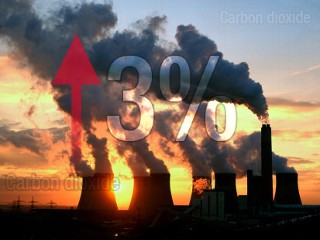Earth's Magnetic Field Reversals Illuminated By Lava Flows Study
ScienceDaily (Sep. 26, 2008) — Earth's north magnetic pole is shifting and weakening. Ancient lava flows are guiding a better understanding of what generates and controls the – and what may drive it to occasionally reverse direction.
See also:
The main magnetic field, generated by turbulent currents within the deep mass of molten iron of the Earth's outer core, periodically flips its direction, such that a compass needle would point south rather than north. Such polarity reversals have occurred hundreds of times at irregular intervals throughout the planet's history – most recently about 780,000 years ago – but scientists are still trying to understand how and why.
A new study of ancient volcanic rocks, reported in the Sept. 26 issue of the journal Science, shows that a second magnetic field source may help determine how and whether the main field reverses direction. This second field, which may originate in the shallow core just below the rocky mantle layer of the Earth, becomes important when the main north-south field weakens, as it does prior to reversing, says Brad Singer, a geology professor at the University of Wisconsin-Madison. more













